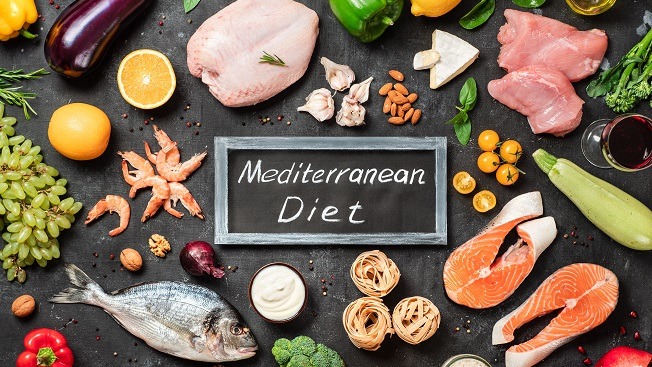The results are in and for the third year in a row, the Mediterranean diet has been picked as the top diet to follow in 2020, according to US News and World Report.
This is the 10th year since this publication has ranked its annual assessment of Best Diets. With the dawn of a New Year, and when many Americans have made New Year’s resolutions to lose weight and get in shape, the Mediterranean diet has retained its reign as King of diets.
An expert panel of 25 of the nation’s top doctors, nutritionists, and physicians specializing in diabetes, heart health and weight loss, reviewed 35 diets in seven areas. These seven areas included how easy it is to follow the diet, what’s the likelihood of losing significant weight in the short and long term, and if the diet led to enhanced improvements in diabetes and heart disease.
What is the Mediterranean diet?
The Mediterranean diet ranked tops in what was called the hallmark of a ‘best’ diet including balance, maintainability, palatability, family-friendly, sustainability, and healthfulness. For anyone unfamiliar with the Mediterranean diet, it’s premise emphasizes simple, plant-based recipes and focuses on eating less red meat, sugar, and saturated fat while eating more heart-healthy olive oil and omega-3 rich fatty fish such as salmon and albacore tuna. People of the Mediterranean region also enjoy polyphenol-rich red wine in moderation and place a priority on eating together as a family at mealtimes.
Other top diets that made the Best Diet Overall list included the DASH Diet and the Flexitarian Diet, which tied for second and third place, respectively. Besides Best Diet Overall, the Mediterranean diet also ranked number one in the Best Diet for Healthy Eating, Easiest Diet to Follow, Best Diet for Diabetes, and Best Plant-Based Diet.
Why choose the Mediterranean diet for your health?
Staying power and value were determining factors boosting the Mediterranean diet in the top spot. It’s not a fad diet that’s here today and then gone tomorrow. It’s been proven safe to follow, it’s sensible and is backed by evidence-based research.
The Keto diet
For anyone wondering how the wildly popular Keto diet rated, it ranked 34th out of 35 diets. The Keto diet, used primarily for quick weight loss, has been criticized for its unhealthy restriction of carbohydrates (as low as only 20 grams a day) to put a person into ‘ketosis,’ a metabolic state that burns the body’s stores of fat instead of carbohydrates, the body’s natural source of energy. It’s low ranking was due to not only the drastic cut in carbs but also how it can lead to headaches, dizziness, and fatigue and long-term studies on its’ effectiveness fall short.
The common side-effects of diets
Fast weight loss, regardless of how it happens, is likely not sustainable. From the Keto diet to Atkins, quick weight loss diets always have a gimmick. Their gimmicks might include eliminating entire food groups, drastic reductions in certain nutrients, or maybe certain food rituals. Because these diets are based on quick weight loss promises, they are also very difficult to follow and maintain for long periods of time. When a person eventually goes off the diet and back to regular eating, the weight they lost comes back on. A major problem with quick weight loss is the likelihood of muscle mass loss. The less muscle you have, the harder it is to lose weight and can lead to sarcopenia or age-related muscle mass loss affecting many other areas of the body. Gaining excess weight does not happen overnight and the same goes for losing excess weight safely – it takes time.
Whether you currently follow the Mediterranean diet or not, it is a highly recommended way of eating that I encourage all of my patients to consider.


